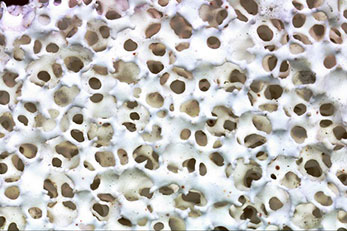Engineering materials
Engineering materials are materials that are specifically designed and optimised for use in engineering and construction applications. These materials are chosen, or designed, based on their physical, mechanical, chemical, and thermal properties to meet the specific requirements of the application. Engineering materials include metals, polymers, ceramics, composites, and semiconductors, among others.

Researchers at KTH use their knowledge of materials science to select and design materials that can provide desired functional properties and withstand the mechanical and environmental (chemical) loads encountered in different engineering applications, such as aerospace, automotive, construction, and electronics. Optimisation of material properties often requires atomic level control of composition and structure.
Understanding the link between material design, production, application, and its long-term performance in the field is crucial for both development of engineering materials and their safe implementation in practice as well as their societal acceptance. In this context, new experimental and modelling tools dealing with crystal structure, material mechanics, chemistry and physics are of particular importance.

